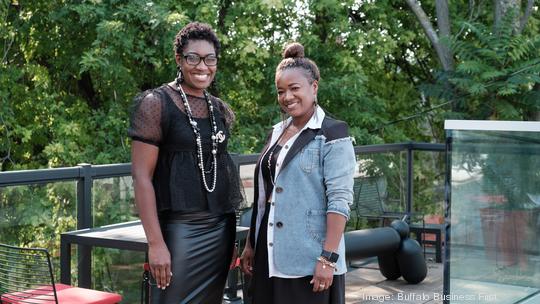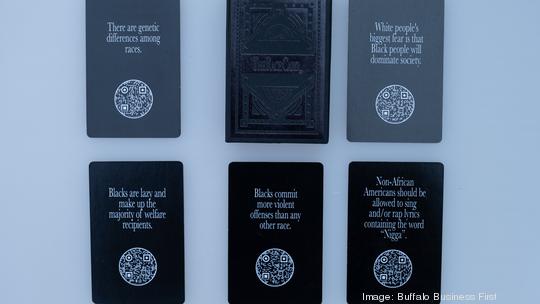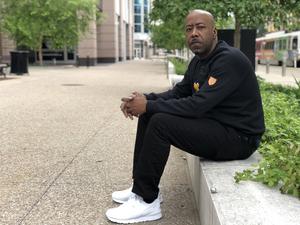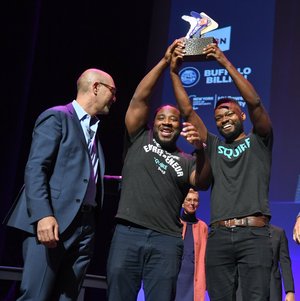
Buffalo-based sisters Sarah Pearson-Collins and Kezia Pearson and their cousin, Cephas Pearson, knew they had to do something after the May 2020 murder of George Floyd.
They started brainstorming, briefly considered a book and finally hit on something unique: a deck of cards.
“The Race Card” is their take on diversity, equity and inclusion training.
“This started with us saying, ‘We need to talk to each other so that we can move forward and stop this nonsense,' ” Kezia Pearson said. “If people know each other and know how much they have in common, they won’t be apt to stand by and watch you get hurt.”
The Race Card can be ordered on the company’s website and executed independently, but it is also a service offered by the founders, who will come to gatherings or business training sessions and help lead the discussion. Demand for consulting started slowly when the game debuted earlier this year but is now coming in from across the U.S. – along with increasing local demand.

The sisters both have full-time jobs – Kezia is an educator and Sarah a therapist — but they spend most of their free time on the Race Card. It’s looking more and more like it might be a full-time job someday.
“I feel like this is a journey that I’m supposed to be on,” Sarah Pearson-Collins said. “It’s anxiety-producing at time when we think about how big this could be.”
Each “player” in the Race Card game gets two cards — a true and a false – and then a moderator pulls from a second deck and reads a question that is designed to spur debate. Each card has a QR code that links to more information.
A Youtube clip by the founders showcases the potential of such a discussion. The card said, “Blacks are lazy and make up the majority of welfare recipients.”
The sisters immediately held up their false cards. Cephas Pearson held up his true card, leading to a nuanced discussion about government assistance, low wage jobs and impoverished communities.
The Race Card gets its power from being inherently provocative – participants start with the outlandish things they might think or hear but never express themselves. The goal isn’t to solve problems, per se. It is, simply, to talk.
“It gets to the conversations we’ve always wanted to have in the community, with folks who can bridge the gap between races,” Kezia Pearson said. “That’s how we learn about stereotypes that people believe to be true but aren’t.”








